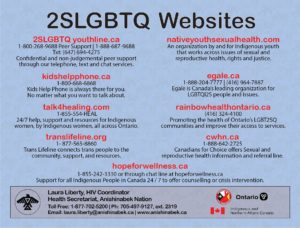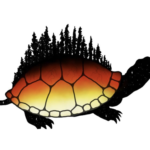HEALTH SECRETARIAT OVERVIEW
INDIGENOUS HEALING AND WELLNESS STRATEGY (IHWS)
The Indigenous Healing and Wellness Strategy (IHWS), is a policy and service initiative that brings together Indigenous people and the Government of Ontario in a unique partnership to promote health and healing among Indigenous people. In 1994, Indigenous organizations and the government ministries that developed this strategy expressed a commitment to combat the alarming conditions of poor health and family violence that Indigenous people in Ontario have endured.
The IHWS program promotes health and wellness in First Nation communities. IHWS combines traditional culturally appropriate programs and services, along with mainstream programming and services to help improve healing, health and wellness to reduce family violence and violence against Indigenous women and children.
IHWS PROGRAMS
The Anishinabek Nation (AN) is one of 15 partners within the Indigenous Healing and Wellness Strategy. The AN administers programs funded by IHWS, which include: Anishinabek Advisory Committee on Health; Chiefs Committee on Health; Policy Analyst; Community Development Workers; Community Wellness Workers; Healthy Babies, Healthy Children; Responsible Gambling and the Annual Health Conference.
The Anishinabek Nation respects the autonomy of each First Nation and each program is governed by the First Nation while meeting the program and service requirements as established by IHWS and overseen by the Anishinabek Nation through the Health Department Director. In addition to the programs and services, often there are one-time grant opportunities that arise and the Union of Ontario Indians Health Secretariat strives to ensure that our First Nations have access to and participate in these initiatives.
Indigenous Healing and Wellness Strategy Indigenous Partners:
- Association of Iroquois and Allied Indians
- Grand Council Treaty #3
- Métis Nation of Ontario
- Nishnawbe Aski Nation
- Ontario Federation of Indigenous Friendship Centres
- Ontario Native Women’s Association
- Anishinabek Nation
- Bkejwanong Territory (Ojibways of Walpole First Nation)
- Chippewas of Nawash First Nation
- Chippewas of Saugeen First Nation
- Garden River First Nation
- Mohawk Council of Akwesasne
- Shawanaga First Nation
- Six Nations of the Grand River
- Temagami First Nation
OPIOID PROGRAM
The Opioid program began in 2022. This program meets with the First Nations front-line workers, leadership, and management to get an in-depth look at the opioid crisis to discuss current issues and to identify their needs through planned community sessions. The program also provides an opportunity for individuals with lived experience of opioid addiction to have a voice in planning and implementing a strategy.
Workshops held include grief and loss, opioid effects on the body and mental health, family healing plans, mental health and addiction summit and continue to look at ways to decrease the stigma surrounding mental health and addictions. Anishinabek Nation First Nations can reach out to the Opioid program if interested in having a workshop in your community.
In addition, the Opioid Strategy Program has organized an Opioid Advisory Committee and Working Group based on the Anishinabek Nation Long-Term Healing Strategy.
JORDAN’S PRINCIPLE
What is Jordan’s Principle and what is its goal?
Jordan’s Principle is a child-first and needs-based legal requirement born from the tragedy of Jordan River Anderson. Its goal is to make sure First Nations children from ages newborn to 18 can access all public services without experiencing any service denials, delays, or disruptions related to their status as First Nations citizens.
It means if a child needs health, social, and educational care and assistance, they will receive it and it will be paid for by the first government contacted under Jordan’s Principle. The issue of who will pay for it will be for later discussion.
Historically, government and department disputes have resulted in delays or denials of services to First Nations children. Jordan’s Principle ensures that if a child has a need, it will be met, and any disputes will be dealt with afterward.
Anishinabek Nation and Jordan’s Principle Navigators
The Anishinabek Nation began development of its own Jordan’s Principle initiative in February 2018 through its newly appointed Jordan’s Principle Navigators. The Navigators main premise is twofold: first, the Navigators promote Jordan’s Principle to families, communities, and service providers, encouraging children with unmet needs and their families to secure access to needed services and supports, and second, to submit requests for assistance either with, or on behalf of these children and families.
Jordan’s Principle Navigators can also assist by connecting children and families to service providers, to work with community Jordan’s Principle workers and to assist them with identified children and families in their communities, and to facilitate or “navigate” the application process for all parties involved, ensuring the child’s needs are always prioritized
COMMUNITY DEVELOPMENT SUPPORT PROGRAM
The Anishinabek Nation (AN) Health Secretariat provides assistance to its member First Nations and their respective Indigenous Health and Wellness Strategy (IHWS) programs. The IHWS Community Development Support Worker (CDWS) works with First Nations to help implement and manage their IHWS programs and projects which are funded under the IHWS. The CDWS manages the files of the Community Wellness Worker, and the Mental Health Demonstration Project files.
COMMUNITY WELLNESS WORKERS
The Community Wellness Workers work with individuals and families within their respective First Nation providing services or access to services, including: family violence services, referrals, support and case management to clients to address and/or respond to existing and emerging health, healing and wellness issues, or violent situations. There is one CWW in each First Nation within the AN territory.
In addition to providing support for the IHWS funded programs, the AN Health Secretariat also provides the same service for other programs administered by the AN including the Diabetes Education Program funded by the Ministry of Health and Long-term Care and the Aboriginal Responsible Gambling Program funded by the Ministry of Health Promotion.
Aboriginal Healthy Babies/Healthy Children (AHBHC)
The Aboriginal Healthy Babies/Healthy Children (AHBHC) Program supports families in celebrating and honoring new and young life in Indigenous communities. The objectives are:
- To foster healing and support healthy child development, maternal health;
- To improve access to services that reduce health inequities for Indigenous families;
- Assist Indigenous families to provide the best opportunities for healthy development using a wholistic, culturally responsive and strengths-based approach; and
- Connect Indigenous families with resources, referrals and/or services to address their needs, such as family violence services.
The ANHBHC Program provides culturally responsive prevention and early intervention supports and services to Indigenous families with children from prenatal to 6 years. The program is voluntary and open to any Indigenous family that requests the service.
The AHBHC community workers are a valuable asset to families and communities as they have knowledge of child growth and development, are aware of the resources available in the community and are able to connect families with services and supports to address their needs.
Each First Nation within the Anishinabek Nation participates in and/or offers the AHBHC program. There are projects sites including Dilico Child and Family Services and Mnaamodzawin Health Services.
Community Development Support Workers (CDSW)
The CDSW provide services and supports to member communities to enhance their skills and capacity to design, implement and report on IHWS programs:
- Support the design, implementation and/or management of IHWS-funded programs and projects, including the maintenance of required program, service and financial reporting, which may include performance measurement and program evaluation initiatives;
- Support the development and coordination of community development initiatives;
- Communicate key program-related information;
- Provide community development assistance, resources and training to improve operations; and
- Oversees the file of Community Wellness Worker
Community Wellness Workers provide wholistic strengths-based and trauma- informed services, referrals, support, case management and cultural programming to Indigenous individuals, families and communities to address and respond to existing and emerging family violence, health, healing and wellness issues, including intergenerational trauma. The Community Wellness Worker service objectives include:
- Reduce family, sexual and gender-based violence; and
- Improve the healing, health and wellness of Indigenous individuals, families, and communities.
Responsible Gambling
The goal of the Anishinabek Nation Responsible Gambling Program is: “To build the capacity of First Nation communities to address issues related to problem gambling.”
Problem gambling prevention programs must be linked with the provincial prevention goals and objectives. These goals and objectives are:
- Increase awareness of the risks associated with gambling.
- Increase public awareness of services available for the treatment of problem gambling and how to access them.
- Prevention programs provide effective, evidence-based services that are culturally, linguistically, age and gender appropriate.
- Decrease negative attitudes towards problem gamblers.




